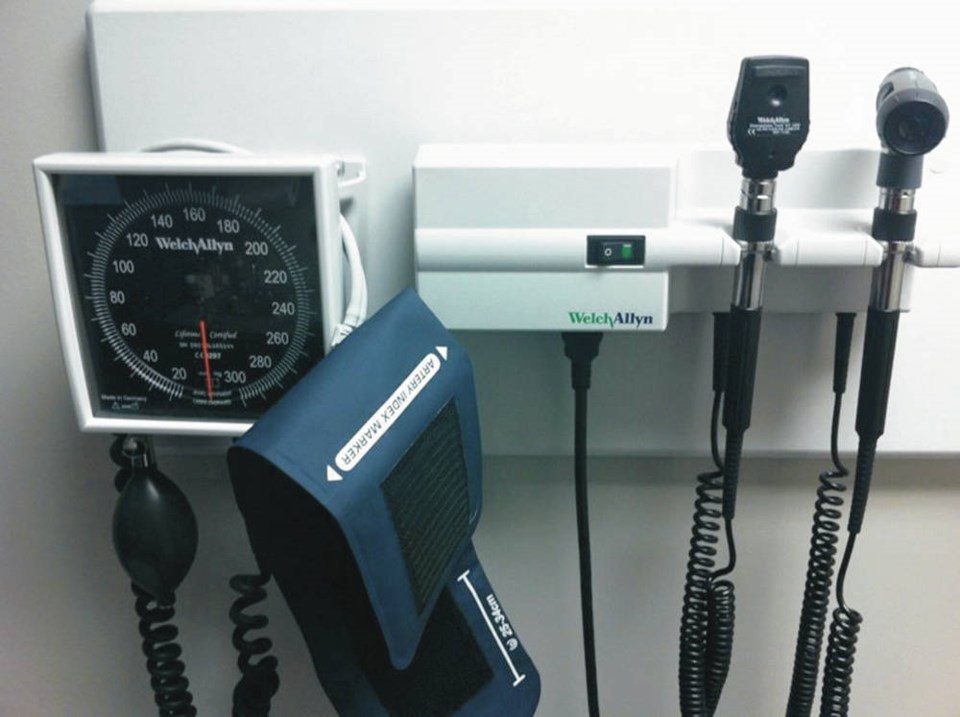B.C. has introduced more pandemic restrictions in Northern Health to address a surge in cases that has resulted in the transfer of 58 intensive-care patients to the south, most to Vancouver Island.
COVID-19 regional restrictions were announced Sept. 2 for Northern Health.
Provincial health officer Dr. Bonnie Henry said almost 100 per cent of cases are the Delta variant.
“It spreads faster and it spreads with a limited amount of exposures,” said Henry. “We are seeing it cause more severe illness in younger people. If you are somebody who is young and healthy and thinks ‘I’m just going to get through this no problem,’ that is not the case now.
“We are seeing this across the province, but particularly in communities in the North, where unvaccinated people in their teens, but primarily in their 20s, in their 30s, in their 40s, are ending up in critical care, ending up in hospital, and today, tragically, we had a young person in their 20s die from COVID-19 the North,” Henry said.
Tighter restrictions in the Northern Health Authority will see personal gatherings remain at five fully vaccinated people indoors and 25 outdoors.
“If you are unvaccinated or have unvaccinated people in your household, then you need to stay with your household only,” Henry said.
Organized events — such as weddings and parties — are limited to 50 people indoors and 100 outdoors. All must be fully vaccinated and wearing masks. B.C. Vaccine Cards must be shown.
Bars and nightclubs in affected areas will be closed and restaurants must stop liquor sales by 10 p.m. Sports events with no spectators, indoors and out, are limited to 50 per cent capacity. Masks must be worn indoors and proof of vaccination shown.
Henry said worship services are no longer considered safe in areas of Northern Health and are reduced to virtual services only. “With the amount of transmission we’re seeing in the North, it is no longer safe for us to have mixing of people who are unvaccinated in these worship settings, and for the next periods of time, worship services will be limited to virtual services only,” Henry said.
COVID safety plans will be required for all organized events. “In addition to these changes, we are strongly encouraging people to remain within your community, unless it is essential to travel for work or for medical reasons,” Henry said, addressing residents of Northern Health.
The restrictions apply to most of Northern Health with the exception of some areas west of Kitwanga including Terrace, Kitimat, Haida Gwaii, Prince Rupert, Stikine, Telegraph, Snow Country, and the Nisga’a. These exempted areas have higher vaccination rates and do not have the same spread of the Delta variant of COVID-19.
The outdoor gathering restrictions do not include outdoor Remembrance Day ceremonies but Henry advised organizers in Northern Health and throughout the province to keep these events small and limited to vaccinated people. The new “circuit breaker” restrictions are in place until Nov. 19 and are expected to save lives, Henry said.
B.C. Health Minister Adrian Dix said the COVID spread in Northern B.C. is an “enormous challenge” and that a “circuit breaker” is needed to cut transmissions.
Unvaccinated COVID patients are also affecting others across the province as intensive care units fill up. “Young people can’t get care for the issues they have. People who need cancer treatment, people who have heart attacks. It’s now a challenge for everybody in our community,” Dix said.
The province has thrown everything at the problem of rising cases in the North “and the kitchen sink went in a week ago” but to date it has not been enough, Dix said.
Henry said provincial health orders requiring all health care workers to be vaccinated have now been posted and the mandate is broad. It includes health care workers and contractors working in hospitals, community health centres, and mental health and addictions facilities.
All workers in health care facilities in the province must have one vaccination by Oct. 26 with a second shot within 35 days.



